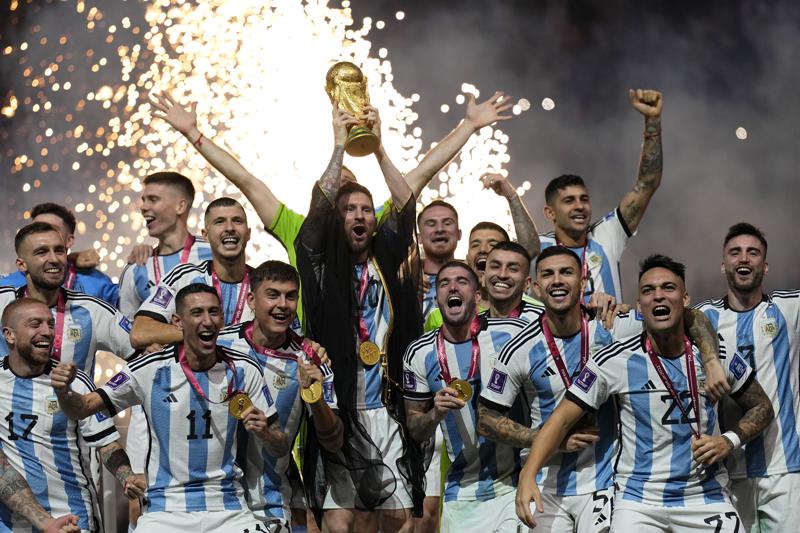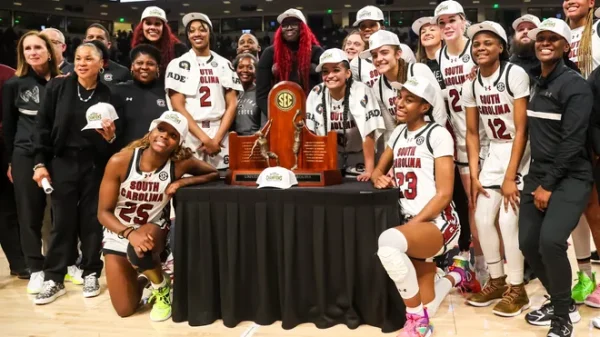The most controversial World Cup in history
The 2022 World Cup is making headlines once again, not only for the exciting games and electric environment but for the multiple controversies surrounding the four-week event.
The controversies began even before the tournament started, with many upset where the competition was being held. Qatar was picked to host the 2022 World Cup in December 2010, which was surprising, as the country’s team had never qualified to participate in a World Cup, but they still managed to beat out superpowers like the United States and Japan in the bid to host. This has caused doubts as to whether or not this decision was legitimate or if bribery was involved. Fans’ suspicions intensified when the International Federation of Association Football (FIFA) made the decision to move the start of the World Cup to November, instead of July, in order to avoid Qatar’s extreme heat during the summer months. Critics believe this proves that there was corruption involved in the decision, as these types of accommodations have not been made for previous hosts. Qatar has also been criticized for its treatment of the LGBTQ+ community and Jewish people, causing many to worry about these fans’ safety during the tournament.
“We are 100% confident in the integrity of our bid,” a spokesperson for Qatari’s Supreme Committee for Delivery & Legacy said in a statement.
Qatar has also faced backlash from the horrible working conditions for migrant workers who were building the infrastructure necessary for the World Cup. Qatar has endured intense scrutiny in the past due to its use of the kafala system, a labor system where workers are tied to a sponsor through legally binding contracts. While there have been revisions in the past few years, employers still have too much power over their workers’ lives. Since 2010, when Qatar was announced to host the 2022 World Cup, more than 6,500 people in the country have died due to the kafala system and the harsh conditions. Many laborers have reported that, while working on infrastructure for the tournament, they have experienced wage theft, long working hours, dangerous working/living conditions, and more.
“Although Qatar has made important strides on labor rights over the past five years, it is abundantly clear that there is a great distance still to go. With the World Cup looming, the job of protecting migrant workers from exploitation is only half done, while that of compensating those who have suffered abuses has barely started,” Steve Cockburn, Amnesty International’s Head of Economic and Social Justice, said in a statement.
Due to the treatment of the LGBTQ+ community in Qatar, many fans and players have attempted to protest. The captains of England, Wales, Belgium, Denmark, Germany, and the Netherlands had planned on wearing “OneLove” (a non-profit LGBTQ+ rights, anti-discrimination, and anti-racism group) armbands during their games to show their support to the LGBTQ+ community. However, due to FIFA, who announced that captains would be given yellow cards if their team wore these armbands, they were unable to wear them. The German team protested this announcement by covering their mouths in their team photo to show how FIFA was silencing them. It has also been reported that FIFA made the Belgium soccer team get rid of “love” on the collar of their shirt. “The Rainbow Wall,” a group of LGBTQ+ supporters in Wales, wore rainbow bucket hats to the Wales’s opening game against USA, but the women’s, not the men’s, were confiscated as they entered the stadium. This has caused outrage from fans, as, not only do they feel their rights are being violated, but the men were allowed to wear them while the women were not.
“Our rainbow bucket hat. We are so proud of them, but news on the ground tonight is our Welsh female supporters wearing them in Qatar are having them taken off them, not the men, just women,” The Rainbow Wall said a Twitter post.
Following the police killing Mahsa Amini, a 22-year-old woman who was detained in Iran for wearing her hijab improperly, there have been protests and demonstrations all throughout Iran. The police have responded to these movements with violent brutality, with over 1000 people arrested and hundreds killed. The Iranian soccer team protested this by refusing to sing their national anthem while Iranians in the crowd booed the anthem. A fan showed his support by running across the field during the Portugal-Urugay match wearing a shirt that said “Save Ukraine” on the front and “Respect for Iranian Woman” on the back while carrying a rainbow flag. For more information on this, read more.
“I think that the violence occurring in Iran is absolutely heartbreaking and that the protests occurring during the World Cup will definitely be remembered. Hopefully, statements and protests like this will become more common so changes and progress will be made,” Shelby Rice, junior, said. QUOTE
Due to the various protests and movements during the tournament, the 2022 World Cup is sure to go down as the most controversial World Cup in history.

Hey! My name is Alannah Hipps, and I am a senior at Etowah this year. This is my fourth year on the Talon staff, and this year I am Head of Staff and President...










